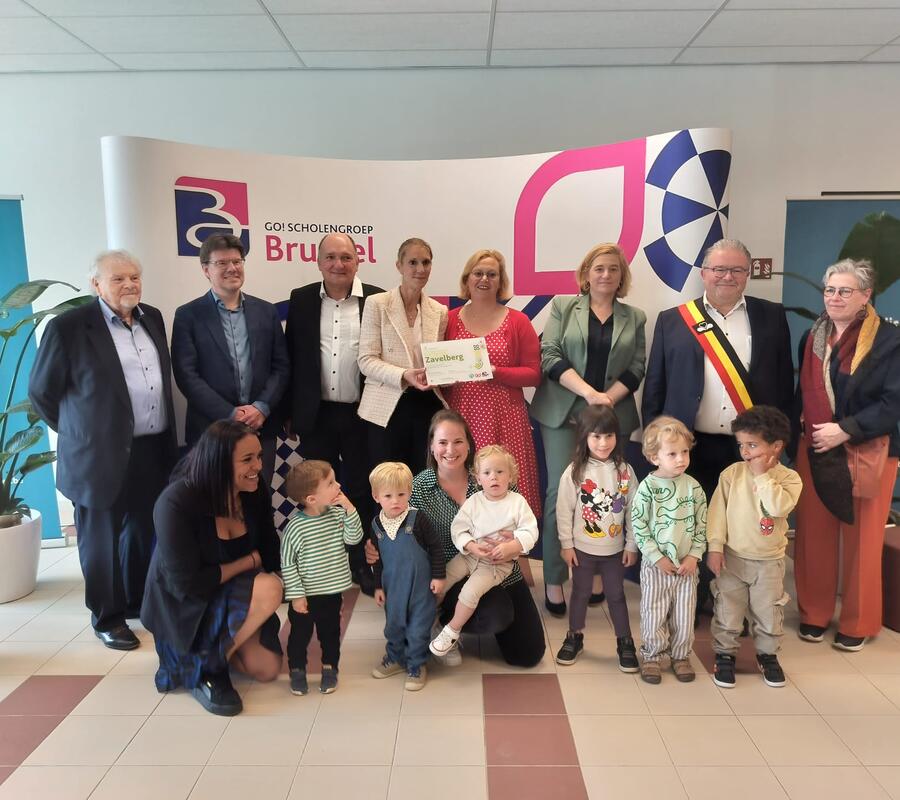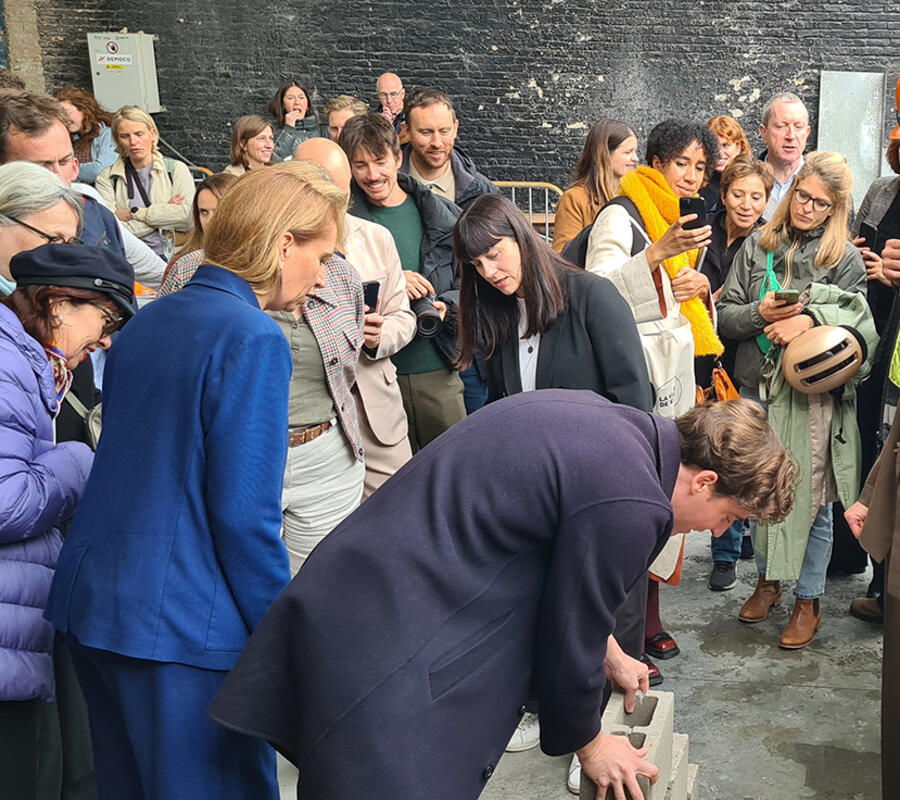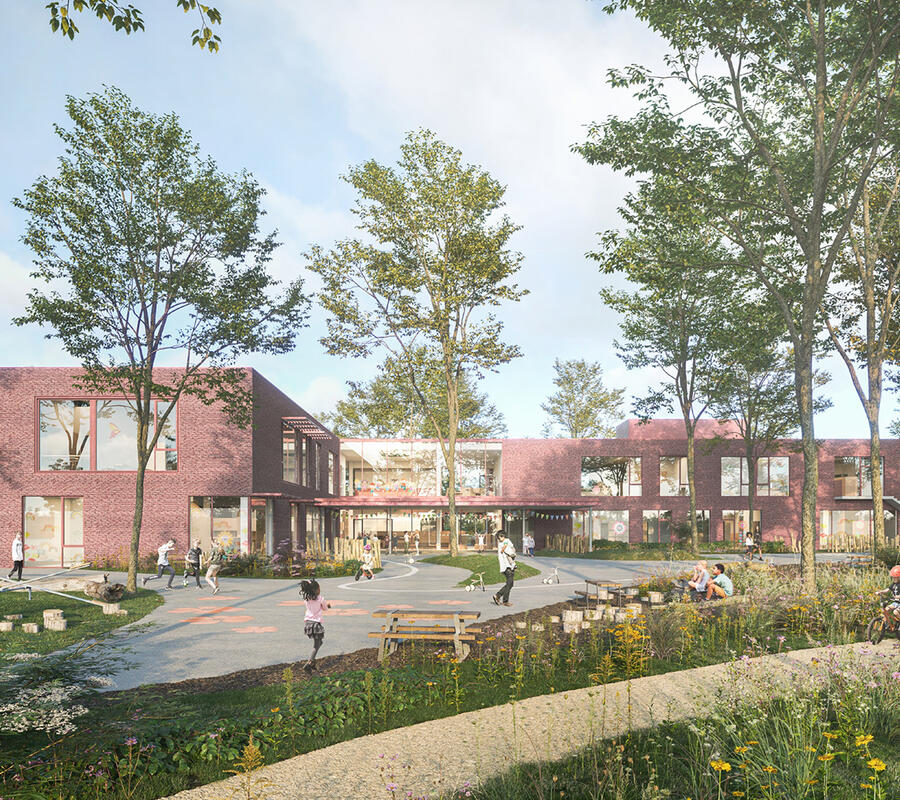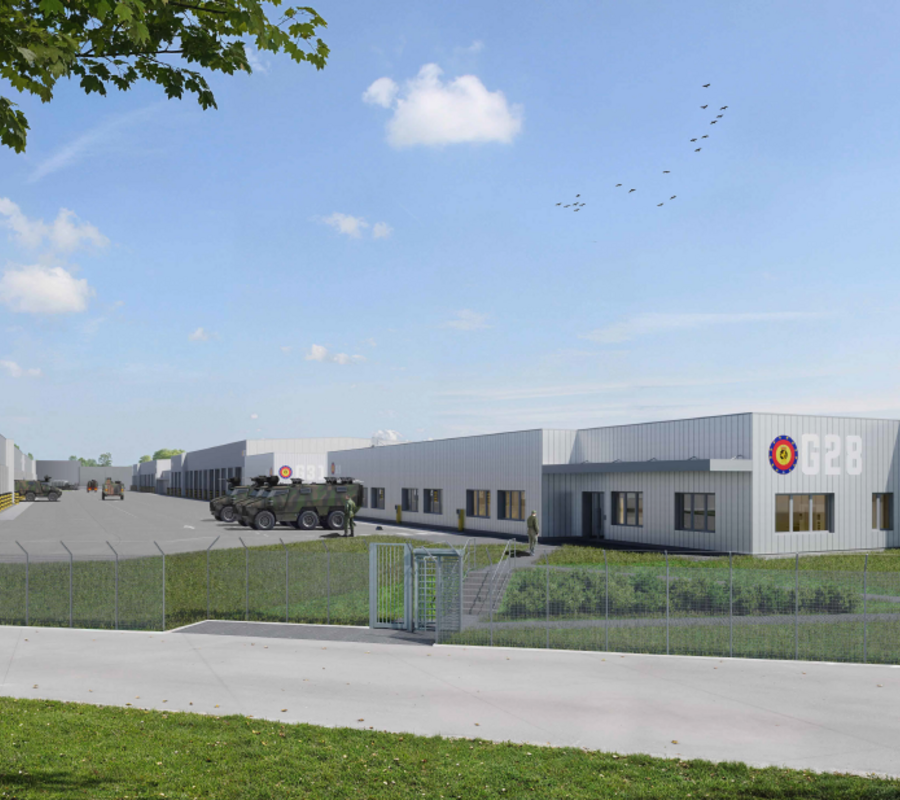Nursery, preschool and primary school united under one roof in a modern and sustainable learning environment
On Friday 23 May, the new sustainable building on the GO! Zavelberg campus was officially inaugurated in Sint-Agatha-Berchem. The campus was developed at the initiative of GO! Education of the Flemish Community and GO! Scholengroep Brussel, and opened in the presence of Brussels Ministers Sven Gatz and Elke Van den Brandt.
With this project, Democo – as a partner in the DeBuild consortium alongside OSKAR architects – contributes to the future of Dutch-language education in Brussels. The new school building brings together a nursery, preschool and primary school in one contemporary, sustainable facility.
Smart building for smart growth
The campus is built around a continuous learning structure: children start in the nursery and move up seamlessly through preschool and primary school, all within the same educational and architectural environment. The clever design – featuring three floors, a central atrium and interconnecting outdoor terraces – fully supports this vision.
Within the DeBuild consortium, Democo took on the construction works as the appointed contractor. The south wing of the existing school building was also renovated. The result is a modern campus that prioritises child-friendly design, collaboration and sustainability.
Sustainability at the core
From the outset, sustainability guided both the design and the construction process. Recycled bricks were used, as much open space as possible was preserved, and a well-considered tree compensation plan was implemented. Outdoor spaces are shared, optimising space usage while fostering a sense of community.
The result is a green, child-friendly oasis in an urban context – a place where playing, learning and growing go hand in hand.
Building opportunities together
The renewed campus offers space for 440 pupils and 54 children in the GO! Zavelberg nursery. The project was made possible through investments by the Flemish Community Commission and VIPA (Flemish Infrastructure Fund for Personal Matters).



